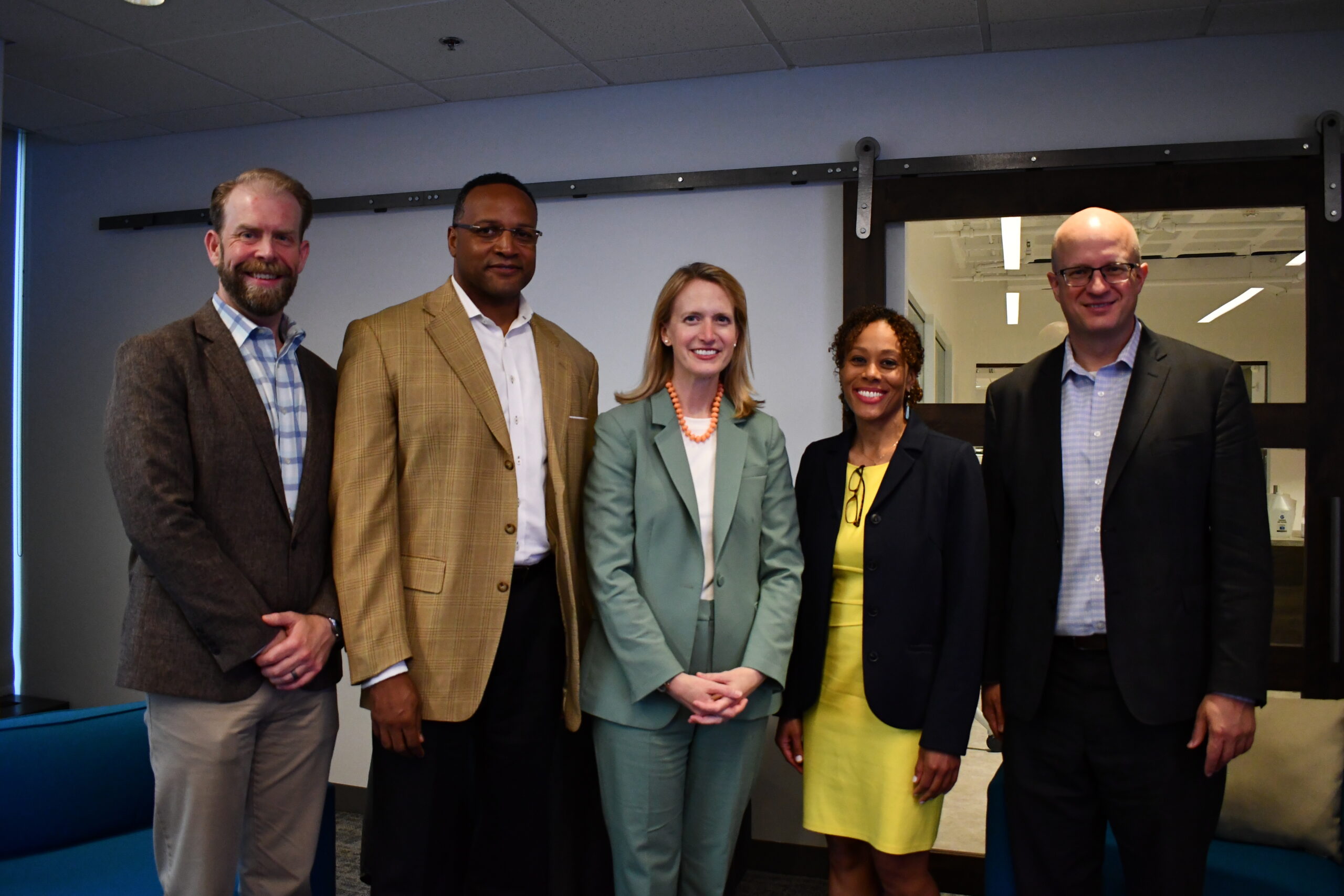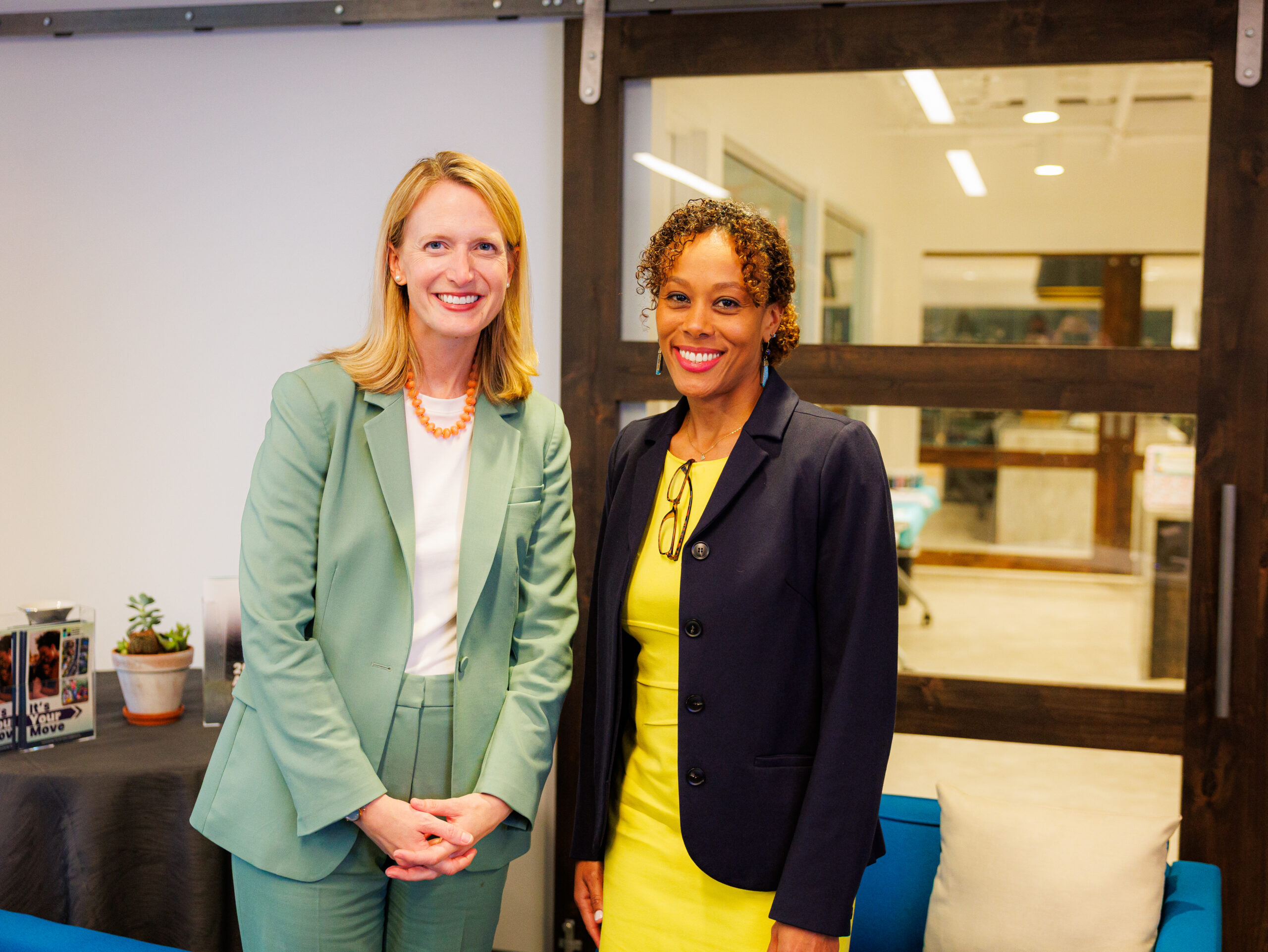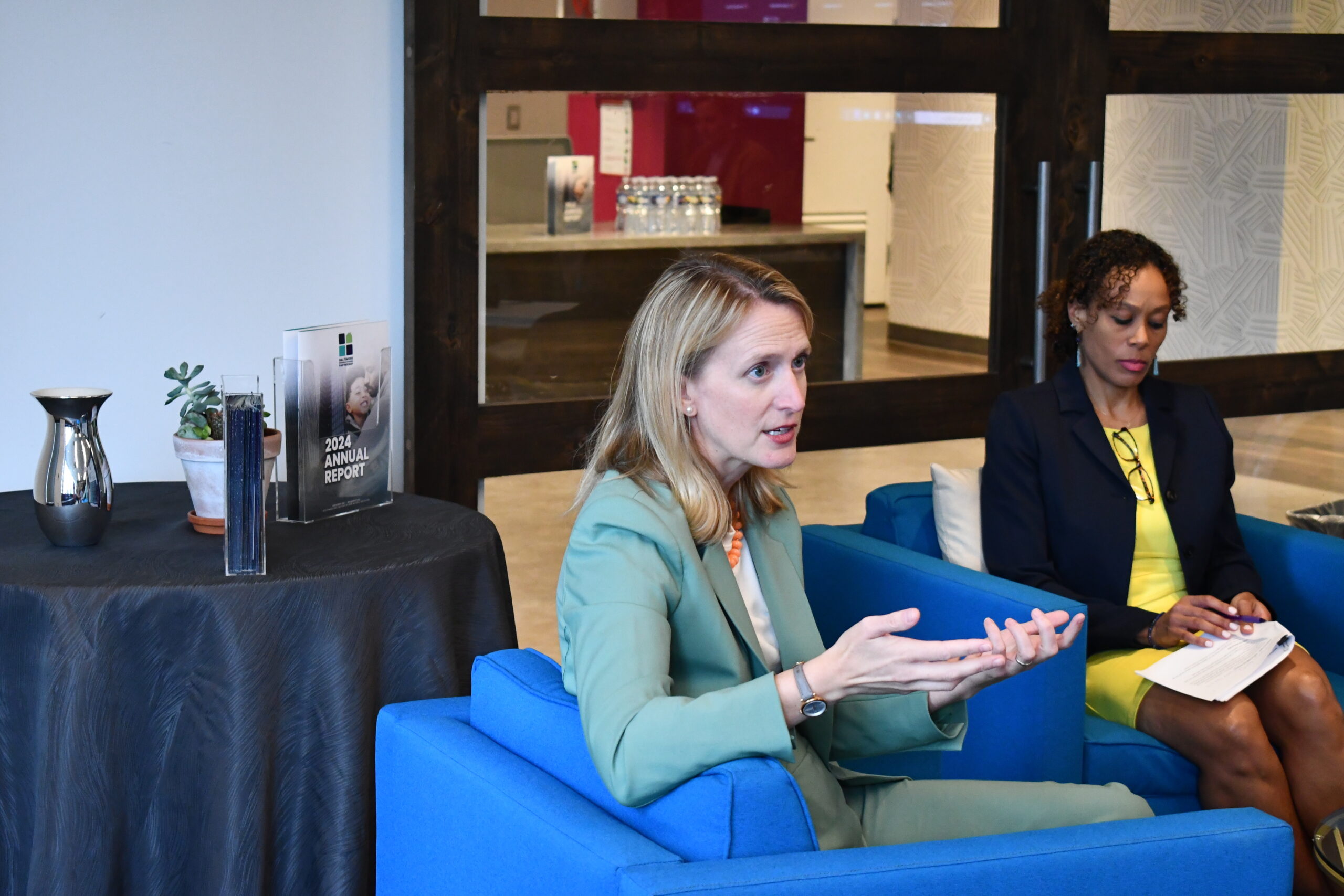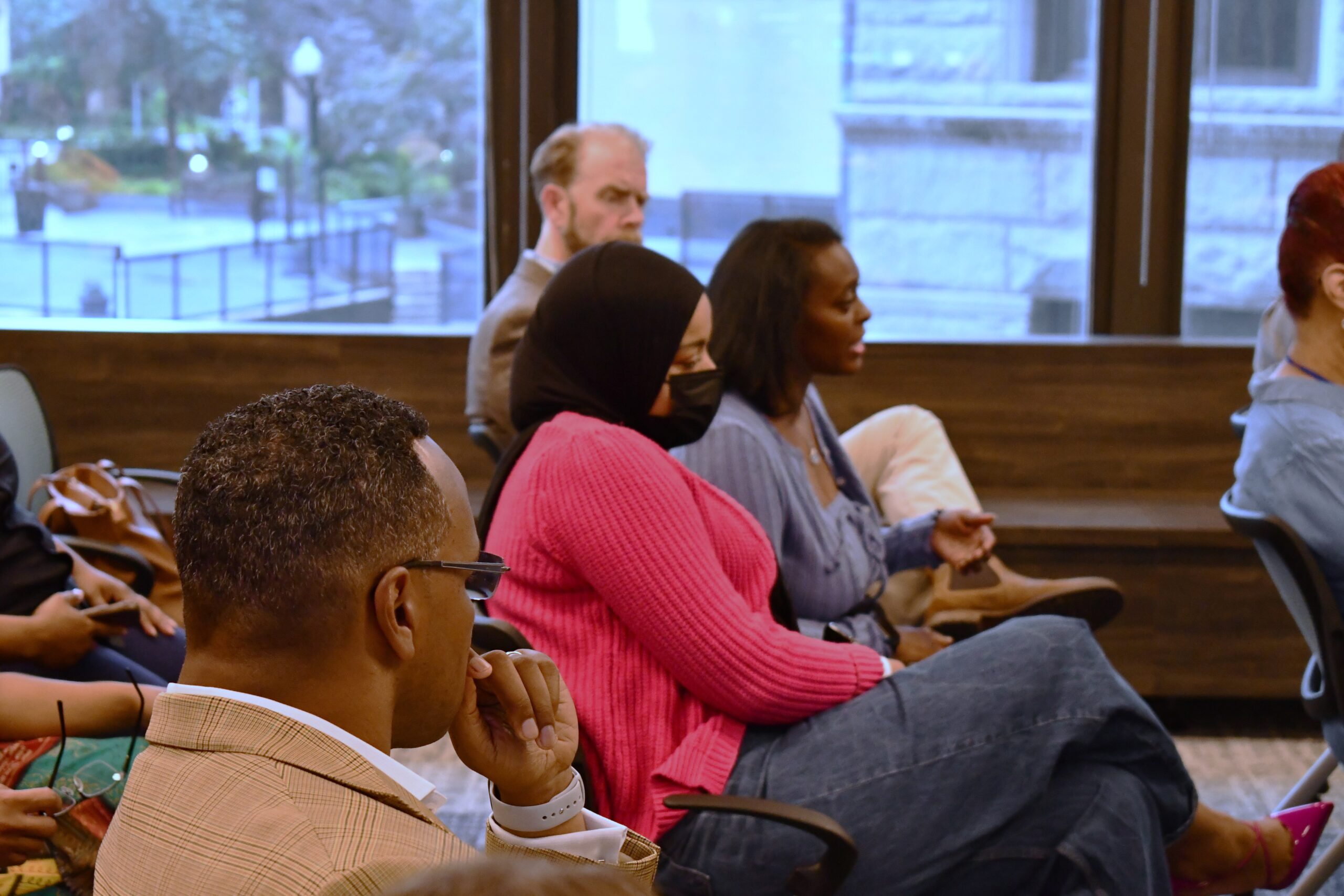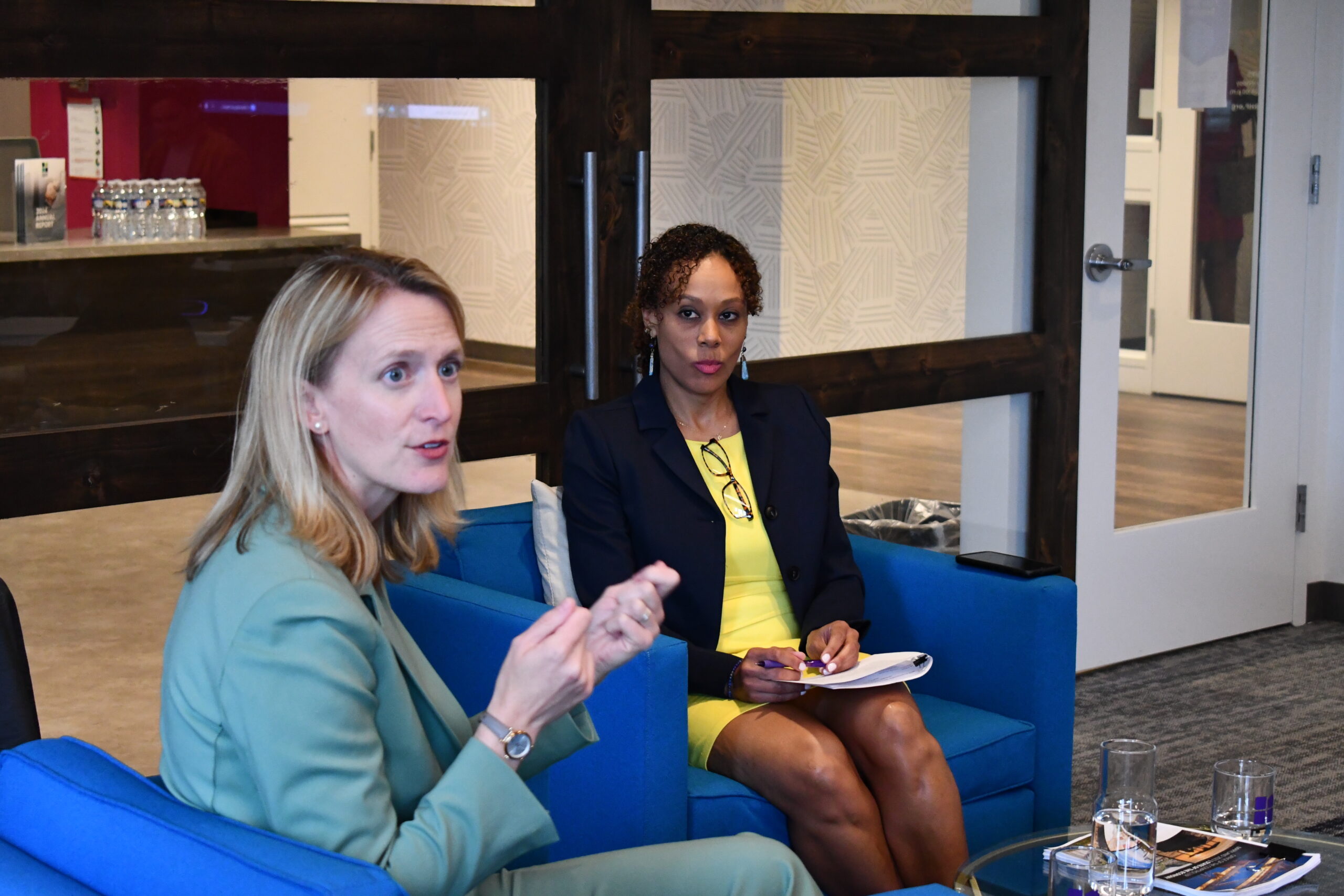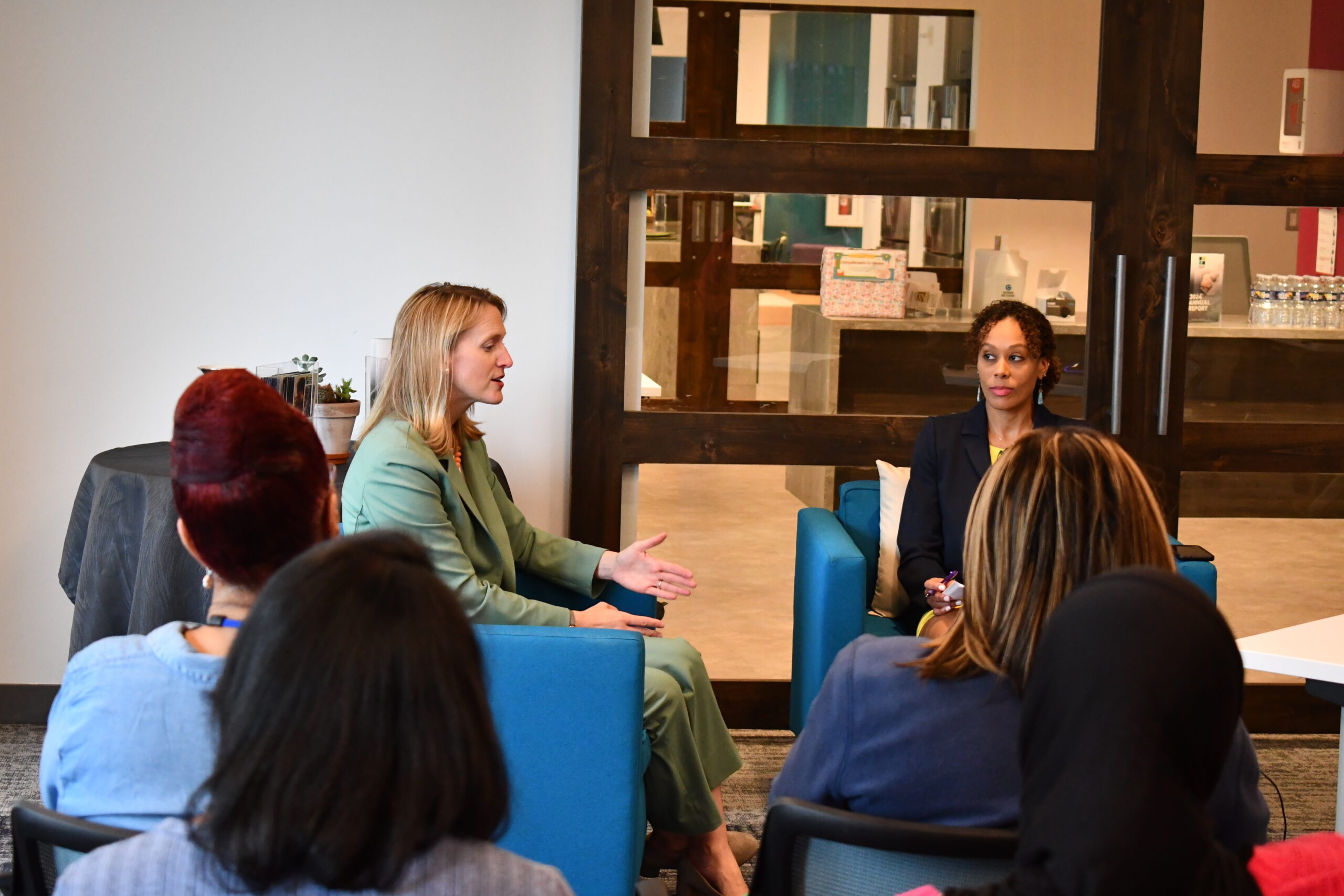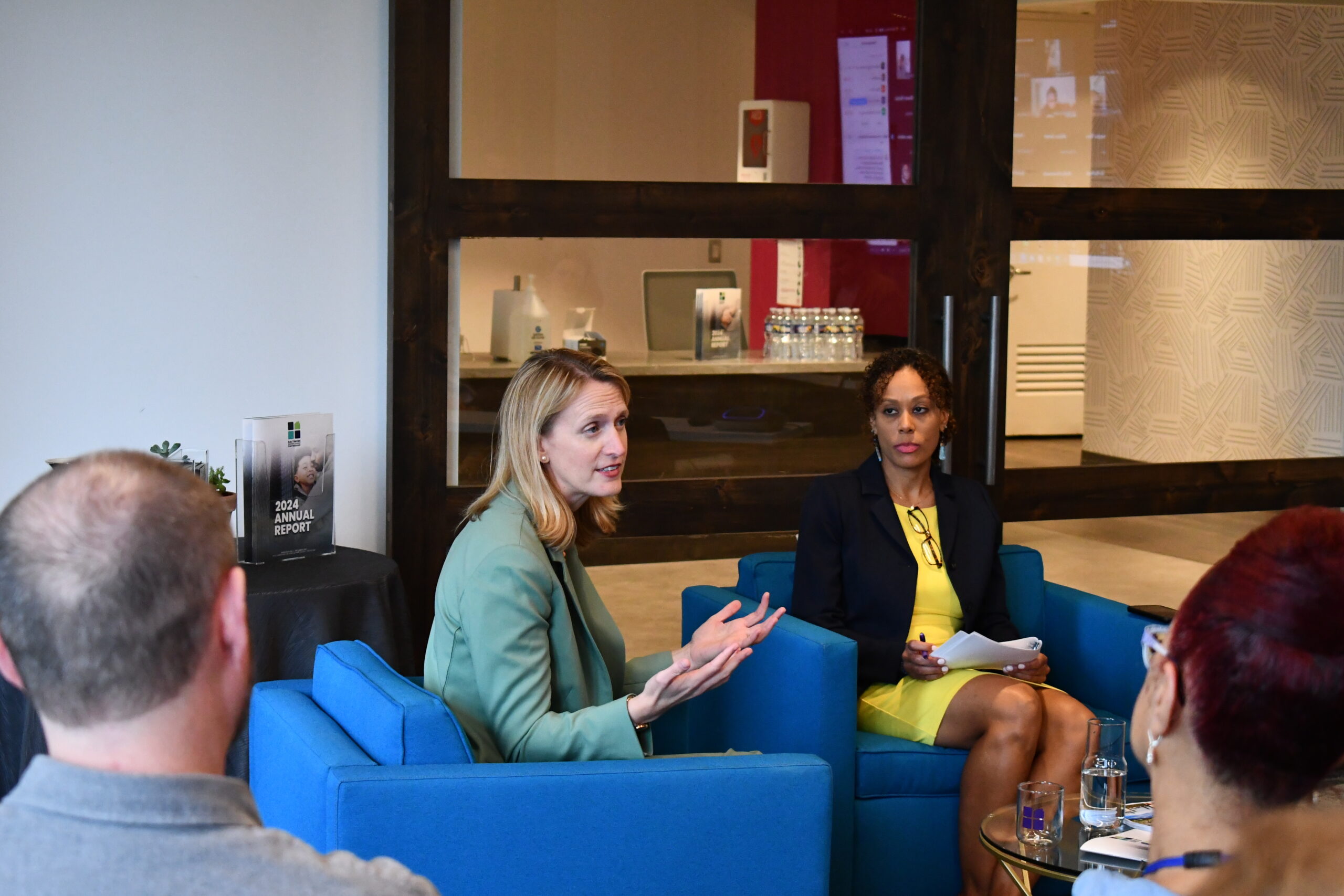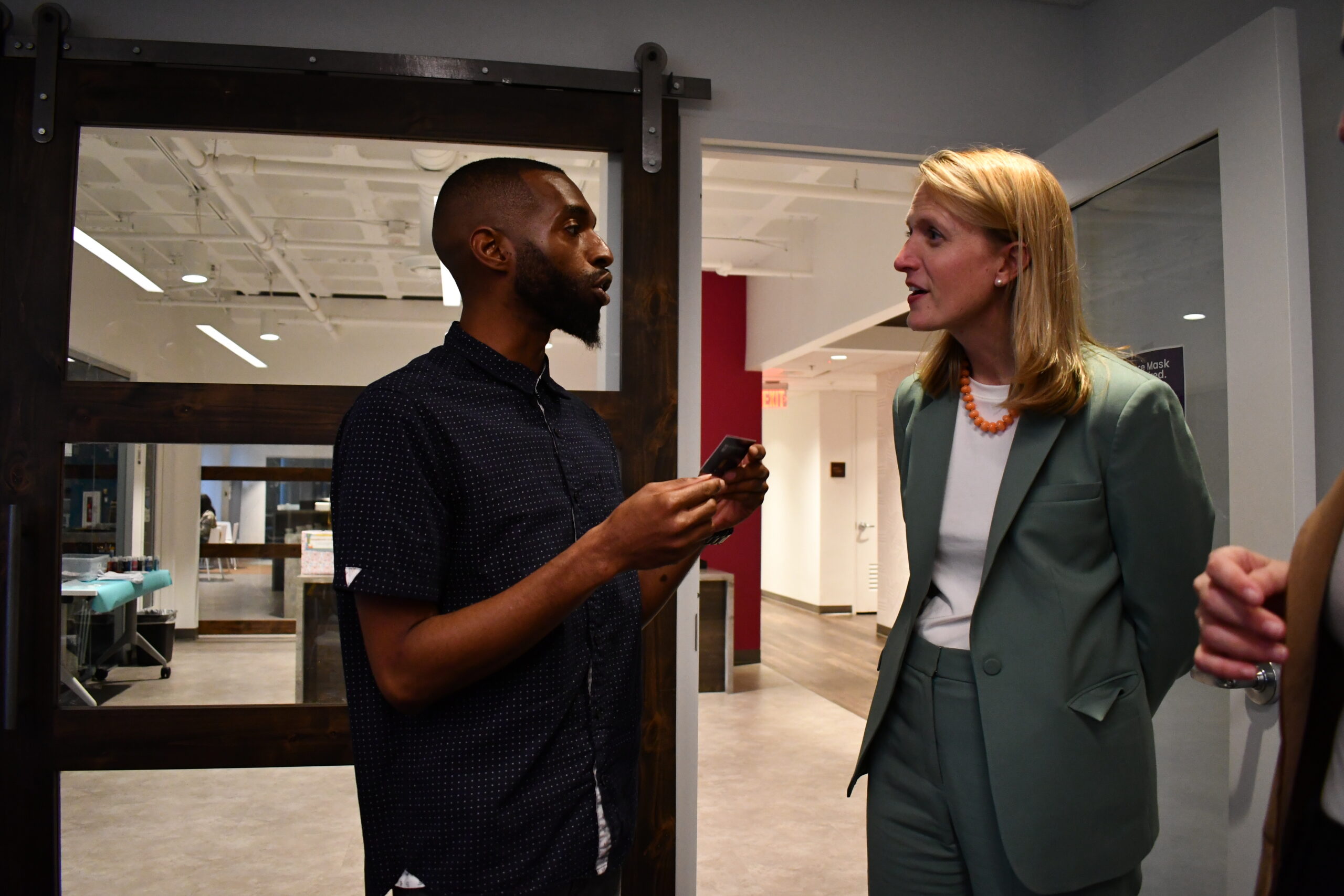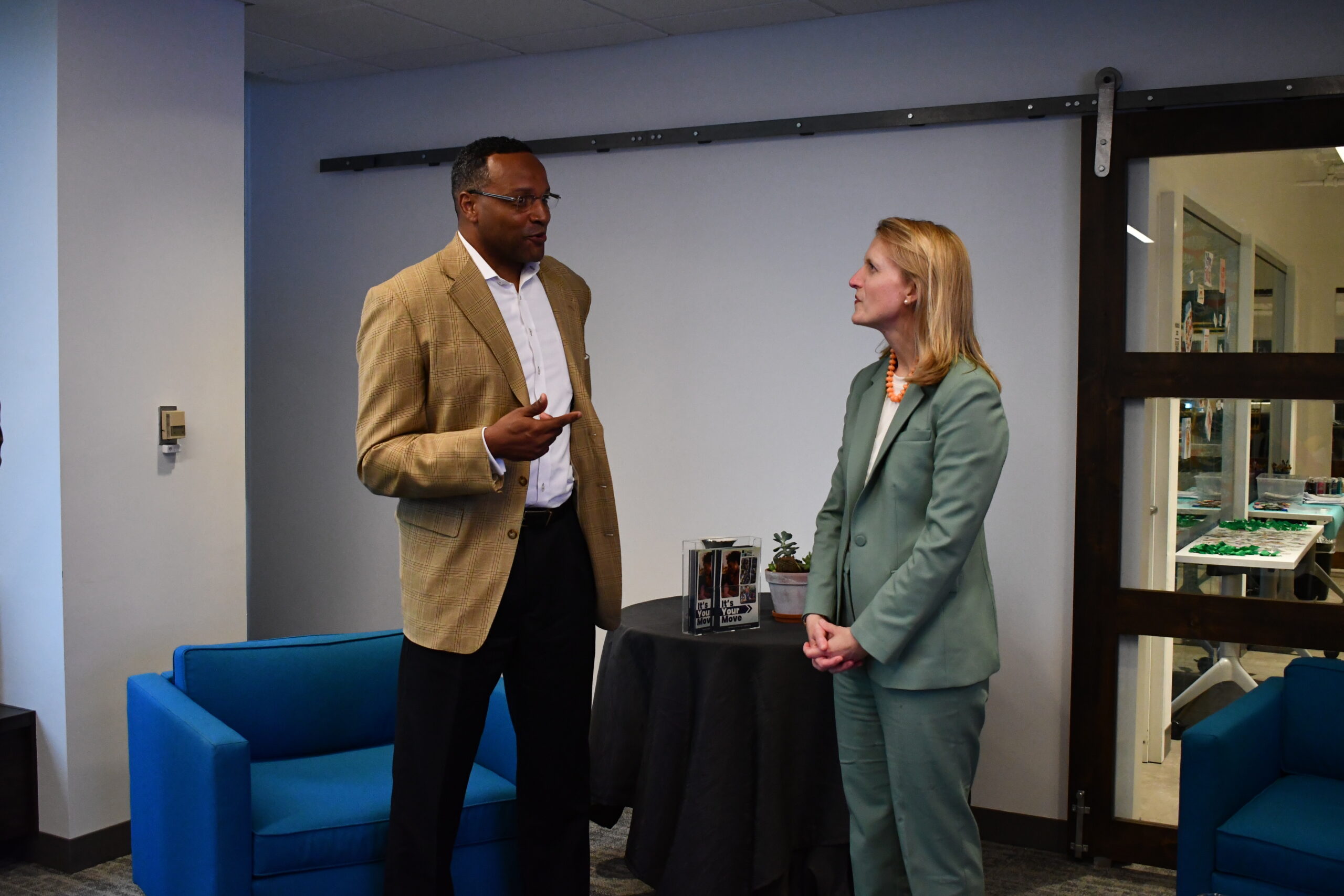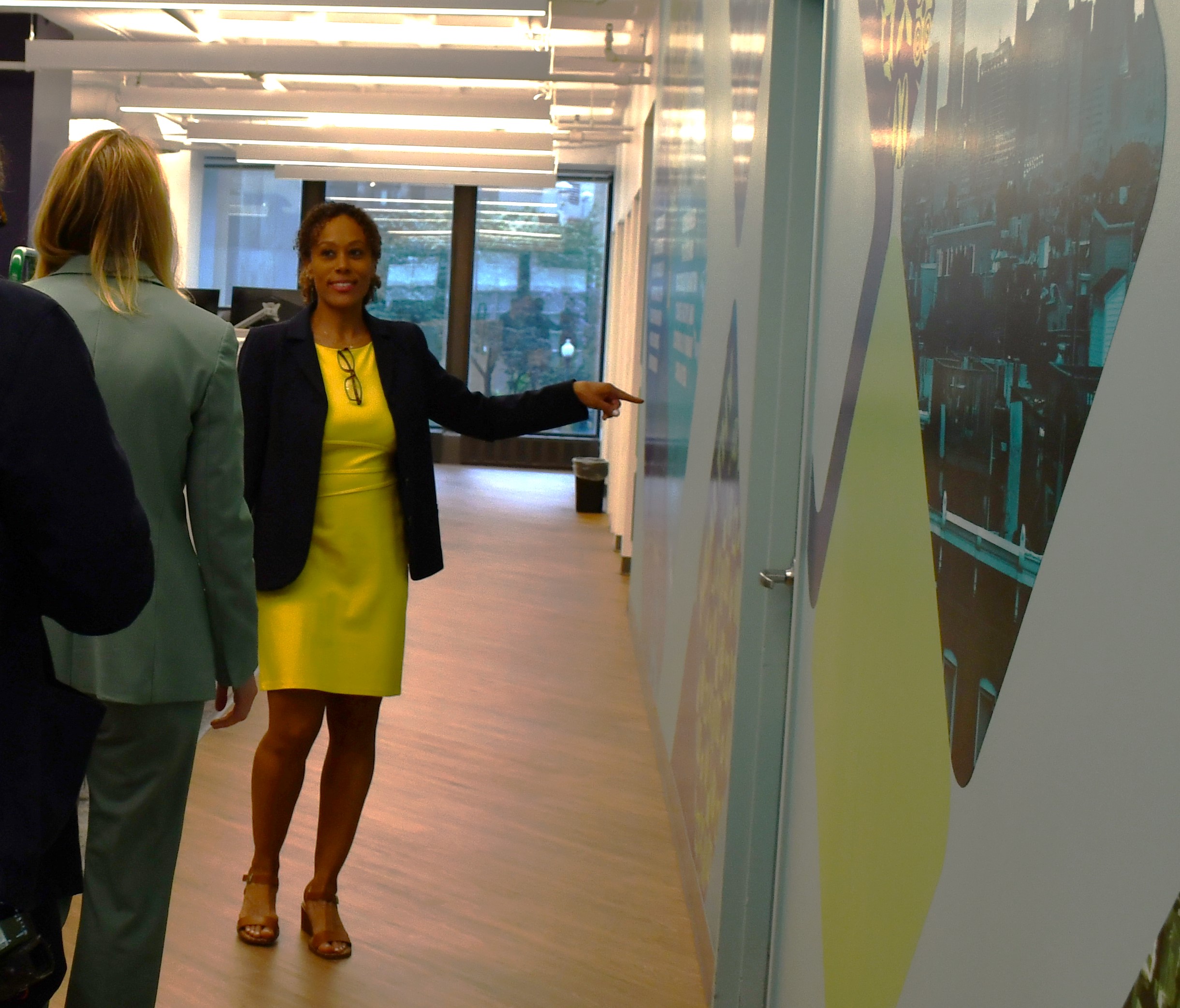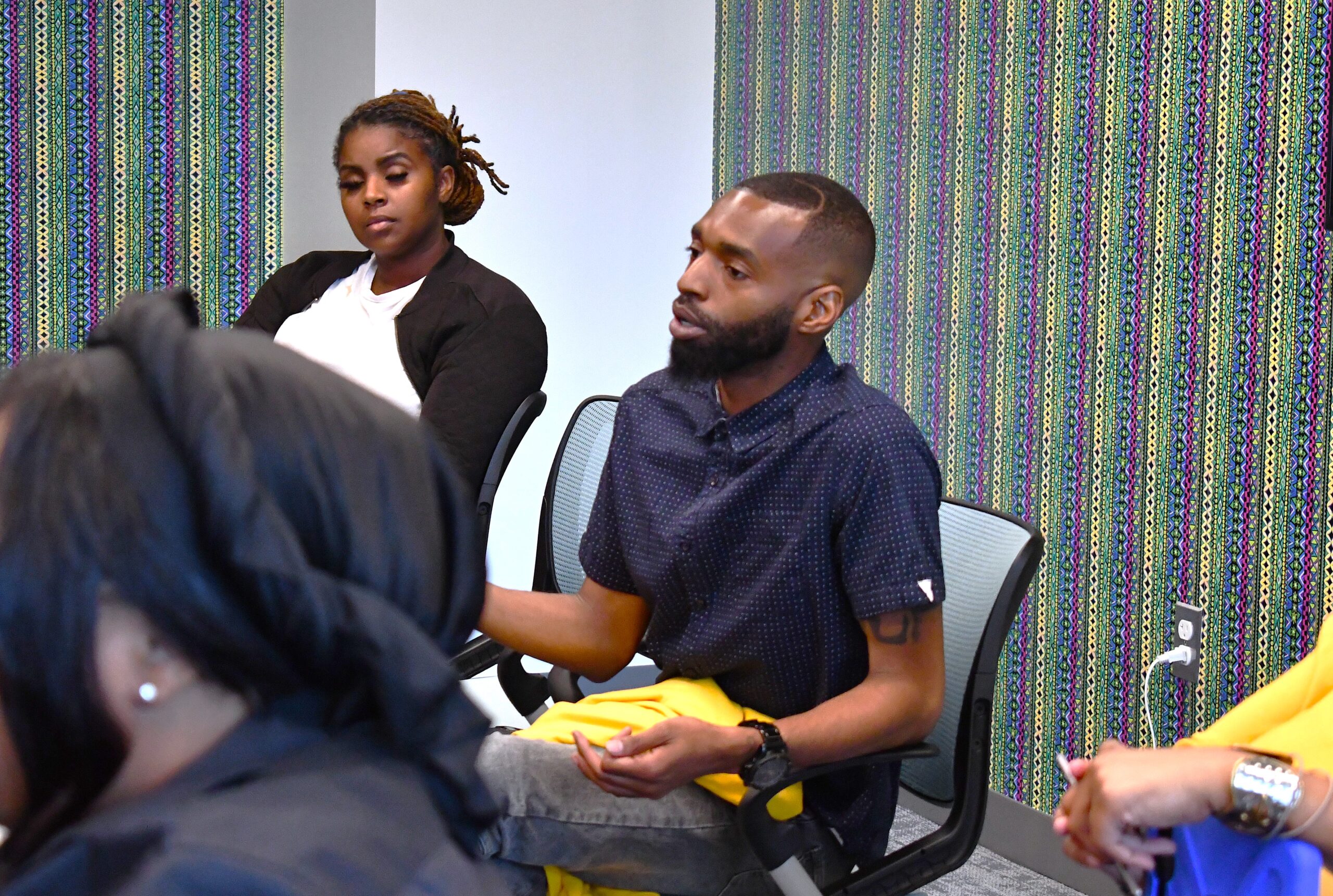On May 22, 2025, BRHP welcomed Maryland Comptroller Brooke Lierman for a thoughtful and informative community discussion as part of our ongoing BRHP In Conversation series. In a dialogue led by BRHP Executive Director Adria Crutchfield, Comptroller Lierman shared her perspective on the economic and housing issues impacting Marylanders today – highlighting opportunities for building equity, addressing affordability, and strengthening workforce development statewide. The conversation came at a pivotal moment, as Marylanders continue to navigate rising living costs and uncertainty at the federal level. Joining Adria and the Comptroller was an in-person audience consisting of BRHP clients, Board members and staff.
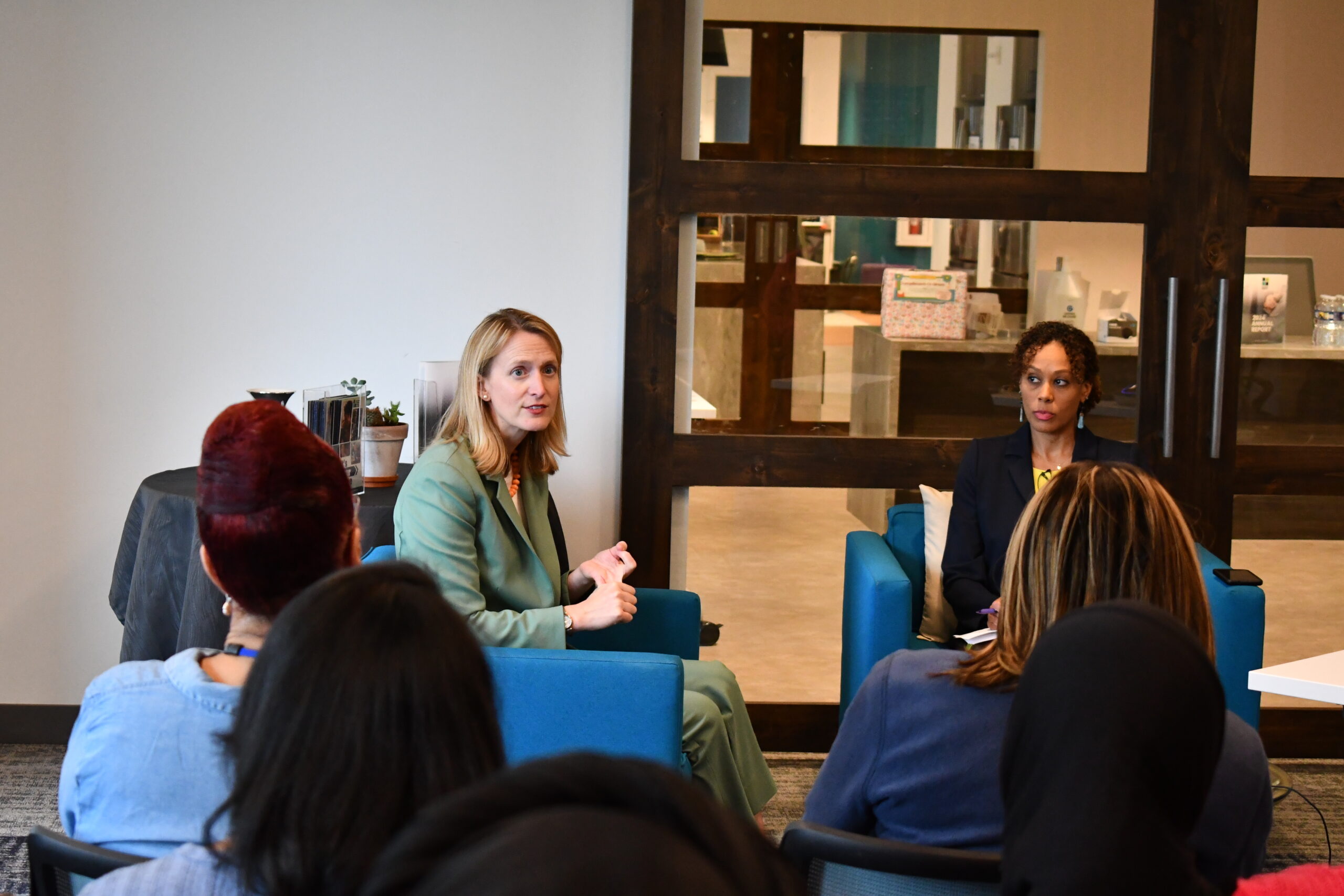
I’m honored to serve in this role so that during my time, we can do as much as possible to work in partnership with you and others… to create a state that’s more equitable, that’s more resilient, and that’s more prosperous, so that every Marylander can really reach their full potential. – Maryland Comptroller Brooke Lierman
State of the Economy Report
Starting the conversation by relaying more about her work and accomplishments as Comptroller, she discussed her office’s State of the Economy Report, which she describes as being born out of a desire to provide Maryland with better economic data and insight, something she found lacking during her time in the House of Delegates. As the state’s elected CFO, Lierman emphasized her role in tracking revenues, balancing the books, and informing budget decisions through the Board of Revenue Estimates.
Comptroller Lierman said her office launched the State of the Economy Report after noticing a troubling trend: Maryland’s revenues were stagnating while costs continued to rise. To understand why, her office spent nine months gathering data, speaking with employers and community leaders, and analyzing economic indicators across the state. Released in January 2024, the report offers a baseline snapshot of Maryland’s post-pandemic economy.
Key findings Comptroller Lierman highlighted include:
Stagnant GDP growth: Maryland’s growth was just 1% compared to 11% nationally over the same period.
Labor shortages: The state had three job openings for every one job seeker, making hiring difficult and slowing economic growth.
Population stagnation: Maryland’s population flatlined, with people leaving for lower-cost states like North Carolina and Florida.
High cost of living: Rising housing costs are the driver of the state’s high cost of living and are pushing people away from Maryland.
Comptroller Lierman noted that this trend marks a national shift—people deciding to move for affordability over opportunity. With housing as the primary driver of cost-of-living concerns, she highlighted its central role in the state’s economic challenges.
Asked to drill down further into the impact of housing on the state’s economy, the Comptroller emphasized that Maryland is facing a significant housing shortage, currently lacking about 90,000 housing units. She pointed out that the state built half as many homes in the 2010s as it did in the 1970s, despite having a larger and growing population.
To help address this, the Comptroller’s office is working on a new report – expected in early fall – on the economic impact of the housing shortage, following previous reports on childcare and immigration.
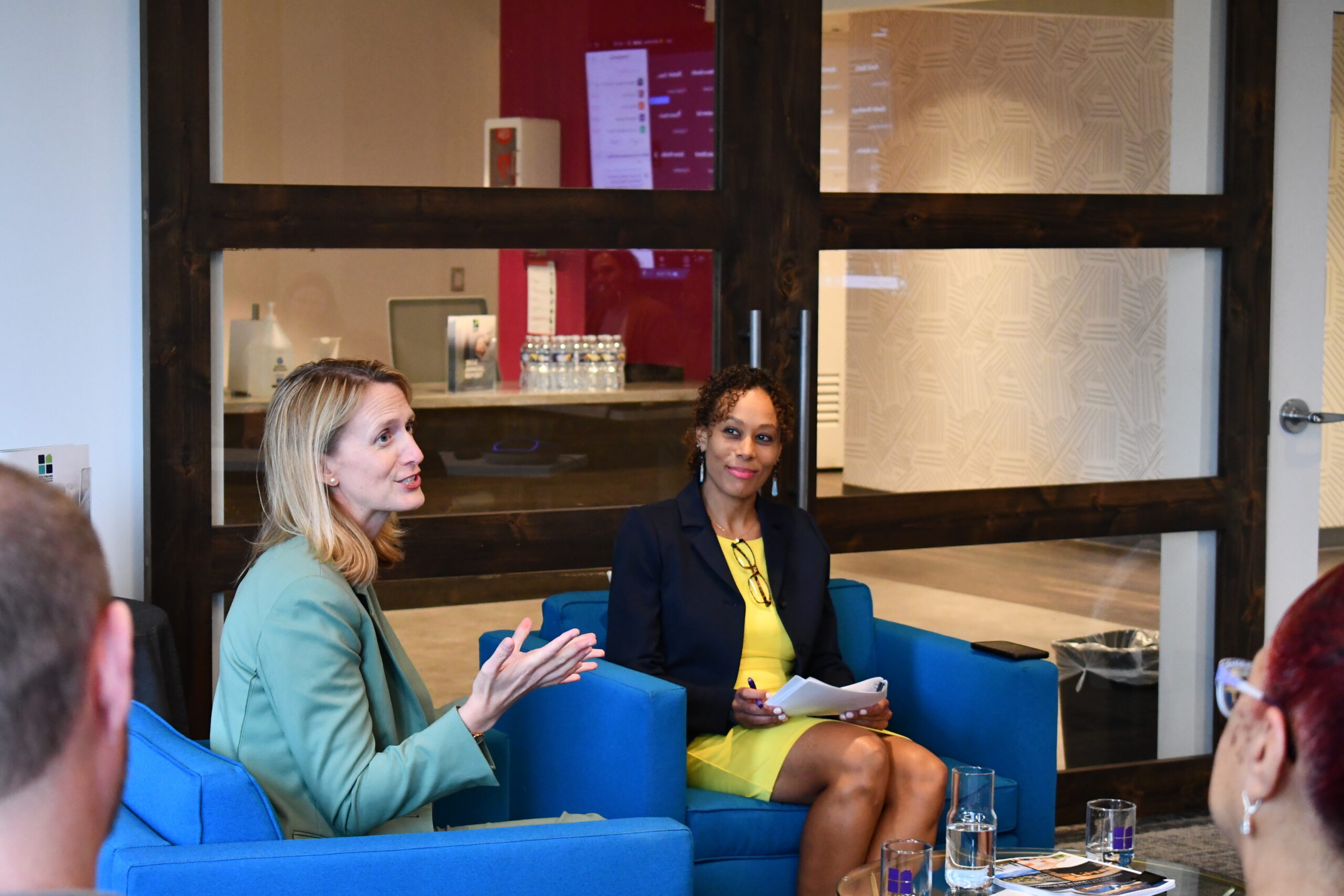
Federal Policy, Local Impact
Asked to discuss the impacts her office has seen from recent actions of the White House and federal government, Comptroller Lierman highlighted that Maryland has long benefited from its close ties to the federal government – with roughly 250,000 households receiving federal wages, over $20 billion in annual federal grants, and about 10% of the state’s GDP tied to federal contracts. She warned that reductions in the federal workforce and further federal cuts pose significant risks to the state’s economy.
To prepare for this possibility, she stressed the importance of fully understanding Maryland’s economic exposure to the federal government, highlighting the need to assess which areas are most vulnerable and to plan a strategic shift toward strengthening the private sector. Specifically, she pointed to Maryland’s highly educated federal workforce as a key asset that must be retained. This will require coordination with the state’s growing biotech and life sciences sectors, as well as investment in emerging “lighthouse” industries like quantum, cyber, and biotech.
The Comptroller’s office is producing a detailed report, set for release in June, to quantify the full economic impact of the federal presence in Maryland. This analysis will serve as a foundation for future strategies to pivot and stabilize the state’s economy amidst possible federal funding and employment decline.
Broadening Employment Opportunities
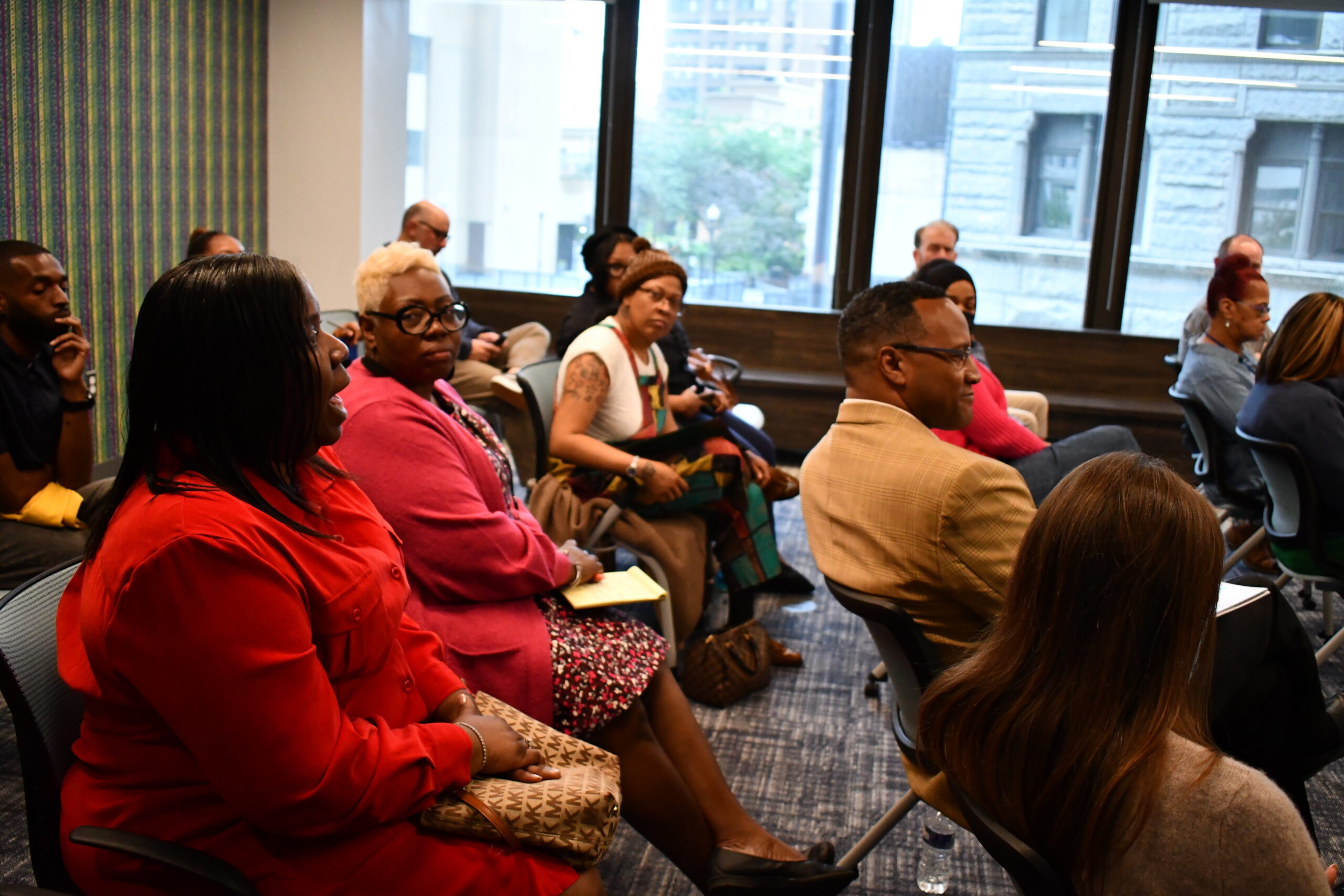
“Ninety-five percent of the jobs in my agency do not require a college degree,” she said. “We hire and train you. That’s a huge part of making state employment more accessible.” – Maryland Comptroller Brooke Lierman
In response to audience questions about economic mobility, Comptroller Lierman shared details on Maryland’s initiatives to widen employment pipelines. She noted that the state is investing in apprenticeships, partnering with local governments and private sector employers, and eliminating unnecessary educational barriers in public sector hiring.
“Ninety-five percent of the jobs in my agency do not require a college degree,” she said. “We hire and train you. That’s a huge part of making state employment more accessible.”
This message resonated with audience members who raised concerns about economic access for families already living in Maryland communities. The Comptroller pointed to the importance of ensuring that new residents and long-time Marylanders alike are supported in housing and job access.
A Shared Commitment to Equity
As the event concluded, Comptroller Lierman reflected on her deep ties to Baltimore City and her appreciation for BRHP’s mission, “I’m proud to call Baltimore home,” she said. “I’m honored to serve in this role so that during my time, we can do as much as possible to work in partnership with you and others… to create a state that’s more equitable, that’s more resilient, and that’s more prosperous, so that every Marylander can really reach their full potential.”
Adria closed the conversation with a call to action: “To our clients, participant members, and community – stay involved. Read what we send you. Show up when we ask for action. That’s going to go a long way towards changing things for the better again.”
We thank Comptroller Lierman for her data-informed approach to shaping policy, her commitment to uplifting all Marylanders, and her bold leadership—and we thank all who joined us for this important conversation. To stay informed about future BRHP events and opportunities to get involved, follow us on social media and subscribe to our newsletter.
Listen on YouTube!
